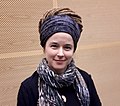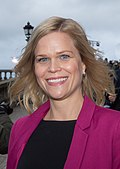This article needs additional citations for verification .(August 2017) |
| Minister for Democracy | |
|---|---|
| Demokratiminister | |
 | |
| Member of | The Government |
| Appointer | The Prime Minister |
| Term length | Serves at the pleasure of the Prime Minister |
| Inaugural holder | Britta Lejon |
| Formation | 1998 |
| Website | |
The Minister for Democracy (Swedish: Demokratiministern) is a cabinet minister within the Swedish Government and appointed by the Prime Minister of Sweden.
Contents
The minister is responsible for issues regarding democracy.









